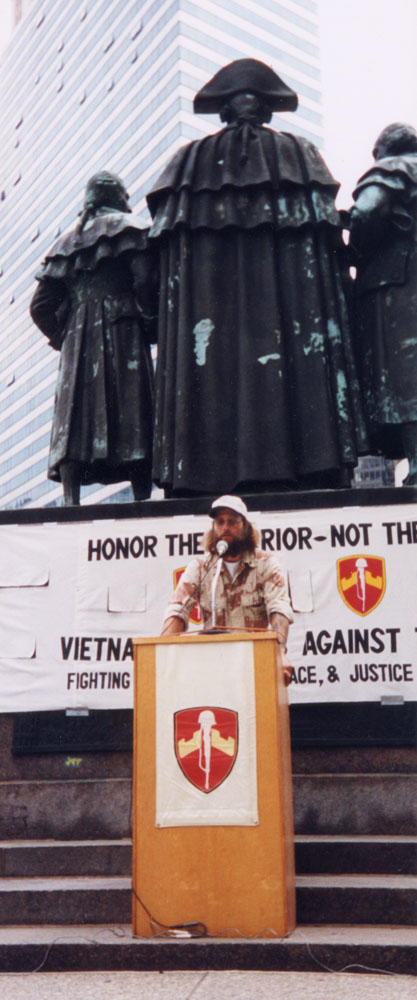 |
Reporting WarBy David Doyle
During the '91 Gulf War, I was with the Marines 1st Light Armored Infantry Battalion. For the months leading up to and during the air war, we patrolled the Saudi-Kuwait border, going back to a rear area only a couple of times. Standing orders were to turn away any reporters that came to our area. We were to answer questions like where we were from, who we were, what unit we were with, all the standard inquiries. Anything of a less benign nature was met with a refusal to answer, and possibly a menacing response. We learned to play the game. We accepted cigarettes (a full carton once off of a Brit) as a bribe to possibly give more information, but never was anything more said, not that we really knew much ourselves. There were really only a couple of times I personally saw any reporters up on our line. I figure the units behind us must have turned them away before they could even get near our position. I do know for certain that television and newspapers did not show what was happening. The press was kept out and left in the dark. They never really could give an accurate report. By the end of the war, as we were busy getting ready to go back to the States, I began to wonder what, if anything, the US public had been able to see and learn. Now, as I sit and watch coverage of this war in Iraq, I wonder what I might glean from the news. I'm skeptical as to what information will be allowed over the airwaves. Everyone is talking so high about this unprecedented situation of reporters being embedded with combat units. Certainly this gives them the opportunity to possibly witness events firsthand, and to experience the war on which they are reporting. But will they give accurate coverage, will they show us the real scene, or will they feel as they are part of the unit and in effect become a cheering section? My question has been answered. Mainstream media has not shown me anything except what they know the public won't run from. I suppose I should have known — they are in the business of selling advertisements. If the US public doesn't watch, they are doing a poor job; if the generals think they are undermining the military, they get sent away. Toe the line: maybe they're thinking that's what they have to do while embedded with the Marines. I think that if we had had a reporter among us in '91 we would have given him no end of grief. It's possible they are more scared of US troops than they are of Iraqis. They need to stay in there so that can write their books in five years. Don't rock the boat, or be stuck with no job and no information. Mr. Arnette is all the proof anyone might need. One lesson of the Gulf War has not been learned. The US public ought to know full well that the realities of military engagement are hidden from them. Iraqi civilian casualties from '91 range anywhere from tens of thousands to hundreds of thousands, depending on the sources you read. Yet the lasting scenes are those of the surrendering soldiers, and of smart bombs. I personally don't know if anything else was shown, but I do recall the scene. I also recall much more gruesome and chilling scenes, scenes that were missed and even today, despite embedded reporters, are being bypassed. The only question I have left about the media in this war is this: which ad agency came up with this recruitment video?
David "Buzz" Doyle is a former Marine and combat veteran of the Gulf War in 1990-91.
|


